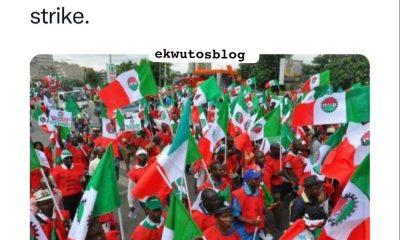Politics
US says it will not limit arms transfers to Israel after some aid improvements to Gaza
Politics
House Approves 2025-2027 MTEF
Politics
President Bola Tinubu has departed Abuja for Paris on a state visit in honour of an invitation from President Emmanuel Macron.

Politics
PRESIDENT BOLA TINUBU APPOINTS JAMI’U ABIOLA AS SSA ON LINGUISTICS & FOREIGN MATTERS

-

 Politics9 months ago
Politics9 months agoNigerian Senate passes Bill seeking the establishment of the South East Development Commission.
-

 Business10 months ago
Business10 months agoInflation hits record high of 29.90% on naira weakness
-

 Politics6 months ago
Politics6 months agoBREAKING: Federal Gov’t Offers To Pay Above N60,000, Reaches Agreement With Labour
-

 SportsNews9 months ago
SportsNews9 months agoOlympic Qualifiers 2024: CAF Confirms Dates For Super Falcons Vs Banyana Banyana
-

 Politics9 months ago
Politics9 months agoGovernor Hope Uzodinma’s New Cabinet In Imo: The Gainers, The Losers
-

 Entertainment9 months ago
Entertainment9 months agoAmerican Singer Beyonce makes history as first Black woman to top country chart
-

 Politics6 months ago
Politics6 months agoBREAKING: Organized Labour suspends strike for one week.
-

 Business9 months ago
Business9 months agoReasons we cannot sell cement below N7,000, by Dangote, Bua, Lafarge














